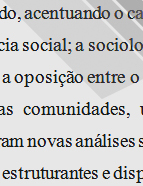

................................
Two aspects of Ângelo Ribeiro’s (UP) contribution stand out: political history, which is partially covered in the second, fourth and fifth periods, and the history of welfare institutions, which he analyses throughout the work. With regard to political history, his approach to the establishment of the republic and his analysis of the 1911 Constitution are particularly relevant. Unlike other authors, Ângelo Ribeiro provides us with a characterisation of the political system enshrined in the republican constitution, analysing in some detail the various powers and their articulation, as well as the competences of each one. Although he does not deal with administrative or judicial institutions, he refers to the laws published with the establishment of the republic that affected society, namely family laws, higher education reforms and changes to military regulations. This reveals a conception of history that grants political and administrative institutions the otherness resulting from their legal existence, regardless of how they may function. Assistance institutions deserve special attention in modern and contemporary times, such as hostels, hospitals, orphanages, reformatories, nursing homes, the Casa Pia, crèches, dispensaries and breastfeeding centres. The approaches seek to distinguish the public or private nature of each institution, to present their respective regulatory frameworks and to characterise the social role they play, as well as the results obtained and the vicissitudes they have undergone.
Joaquim de Carvalho (UC) briefly deals with nineteenth-century political institutions, particularly the central government and its functioning. However, it is in his treatment of cultural institutions that he most distinguishes himself. The medieval and modern periods are studied in detail with regard to educational institutions at the elementary and secondary levels. Cathedral and monastic schools are characterised in terms of their organisation and functioning, highlighting their social and cultural role over time. The University of Coimbra occupies a large part of the historian’s concerns. From its foundation to its organisation and functioning, through its vicissitudes until the reign of King João III, the university institution is addressed in its various aspects, from its statutes to its study plans and internal governance. The creation and regulation of the EU also deserve the attention of Joaquim de Carvalho, whose concept of cultural institution is not limited to legal and regulatory aspects, but also seeks to capture the cultural, social and even political role played by each organisation throughout its history.
This work is financed by national funds through FCT - Foundation for Science and Technology, I.P, in the scope of the projects UIDB/04311/2020 and UIDP/04311/2020.
